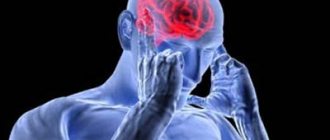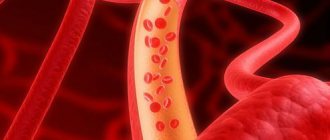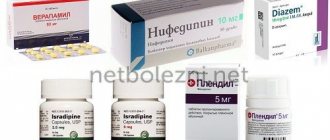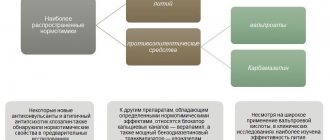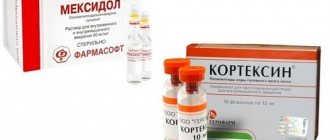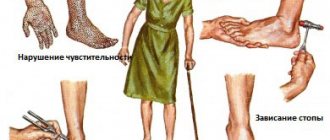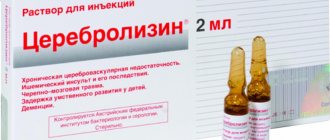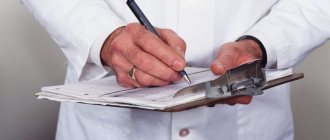Traumatic brain injury (TBI) is the most common cause of death and disability, especially in children and young people. Mild injuries (90.7-95.2%) include concussions (83.9-87.6%) and contusions (16.1-12.4%) of the brain.
Most often, the use of drug therapy is sufficient to eliminate the consequences of mild TBI. Therefore, it is important to find out which medications for concussions are used during inpatient treatment, and which ones can be used at home.
A concussion requires specialized treatment.
Specifics of traumatic brain injuries
Trauma occurs when the brain moves back and forth in the cranium in the event of a collision with an obstacle or a blow to the unfixed head with a blunt object.
The most common causes of TBI are:
- falling and hitting your head on a hard surface;
- blows to the head in boxing;
- head impacts when colliding with an obstacle in traffic accidents.
In newborns, concussion can be caused by intense motion sickness and shaking.
When a collision occurs, the massive and loose cerebral hemispheres are put into rotational motion relative to the thin brain stem, securely fixed by the nerve roots to the base of the skull.
During rotation (rotation), damage occurs to neurons (reticular formation) that activate cells in the cerebral cortex. As a result, the victim loses consciousness. Another consequence is a short-term increase in intracranial pressure with redistribution of cerebrospinal fluid.
A feature of trauma disorders is the absence of structural damage to the brain matter. Meanwhile, a complex of metabolic disorders arises in the brain, leading to disruption of the function of nerve cell membranes and the course of physiological processes in nervous tissue.
There is reversible damage to small blood vessels, selective destruction of groups of neurons in certain areas of the brain, caused by the toxic effects of excitatory amino acids (glutamic, aspartic).
Symptoms accompanying a concussion:
- loss of consciousness, duration not exceeding 20-30 minutes;
- post-traumatic amnesia lasting 24 hours or less;
- diffuse headache;
- nausea;
- general weakness;
- decreased performance;
- dizziness of non-systemic etiology;
- lack of appetite;
- sleep disturbance;
- lethargy, slowness;
- Gurevich-Mann syndrome (pain when moving the eyes);
- one-time vomiting.
Diplopia, nystagmus, and photophobia are observed rarely and are limited to a few minutes. Confusion, impaired speech function, and cognitive dysfunction are possible only with severe damage or with repeated TBI.
In the acute period, during an external examination of the victim, the following are noted:
- pale skin 32%;
- tachycardia 32%;
- bradycardia 24%;
- blood pressure surges 52%;
- bruises on the face and head 76%.
Some reflexes may be impaired. In 76% of cases with a concussion, such a rare symptom as the upper labial ankylosing spondylitis reflex occurs. It does not appear in other types of TBI.
Symptoms are subjective and may disappear by the time of hospitalization. This is where the difficulty in diagnosing injury lies. In most cases, the signs quickly regress and their presence can only be judged from the words of the victim himself or witnesses to the incident.
Headaches most often persist for no more than 1 day. Immediately after the injury, a short-term convulsive seizure may occur, which does not require specific antiepileptic treatment. But with a mild concussion, this symptom appears extremely rarely.
In children, even mild forms of TBI can have long-term consequences, because their brain growth and development has not yet finished. On the other hand, the central nervous system in children is characterized by plasticity and high restorative ability.
It is possible to predict the consequences of injury and identify the severity of damage only by conducting instrumental studies: CT, MRI.
Symptoms
- Headache
- Pain in the neck
- Headaches worsen with exertion, coughing, bending or moving the head
- Dizziness
- Double vision
- Memory disorders
- Loss of appetite
- Hearing impairment
- Nausea and vomiting
- Changes in sense of smell or taste
- Problems concentrating
- Tinnitus
- Noise sensitivity
- Sensitivity to light
- Anxiety
- Depression
- Sleep problems
- Muscle spasms in the head, neck, back and shoulders
- Fatigue
Patient care at home
Management of patients is limited to short-term (from 1-2 to 5-7 days) placement in a hospital, during which instrumental examinations, history taking, and symptomatic therapy are carried out. To relieve symptoms and accelerate regeneration, drugs that affect the central nervous system are prescribed.
Regression of symptoms occurs independently, without the use of medications. In some cases, recovery takes from several weeks to several months.
In older patients, recovery takes a longer period from 3 to 6-12 months.
After discharge from the hospital, the patient is sent home under the supervision of family and friends.
They are given a list of symptoms, the occurrence of which requires immediate return to the hospital:
- increasing headache;
- repeated vomiting;
- signs of fluid leakage from the nasal or ear canal, characteristic of liquorrhea.
Immediately after discharge, it is recommended to remain in bed and avoid physical and mental stress. A gentle regime is necessary for 1-2 days.
In case of a concussion, bed rest is mandatory.
To prevent the development of complications, you should avoid:
- heavy physical activity;
- playing sports;
- watching television programs;
- long periods of time at the computer;
- reading books;
- listening to music on headphones;
- drinking alcohol;
- smoking.
Relatives should monitor the condition of the injured person. In most cases, loved ones do not contact a neurologist to monitor their condition after discharge from the hospital. This kind of inattention is especially dangerous for children.
The negative consequences of injury can manifest themselves in the form of:
- periodic headaches, weakness;
- fatigue;
- deterioration in school performance;
- emotional lability: mood swings, aggressiveness, tearfulness.
To prevent complications, it is recommended to be examined regularly by a neurologist for a year after the injury.
Examination by a neurologist.
How does a concussion occur?
Cerebrospinal fluid, or cerebrospinal fluid, surrounds the main thinking organ on all sides. The brain, one might say, floats in it, thereby reducing the negative consequences of impacts on the skull. But severe mechanical damage to the head can lead to a concussion.
The phenomenon causes:
- disruption of metabolic processes in organ tissues;
- vascular injury - numerous small ruptures;
- microcracks in the bark;
- difficulty feeding cells;
- hemorrhage (rare).
There are no age or gender restrictions for receiving this damage. A concussion can be triggered by a fall or injury during sports or outdoor activities.
A pathology of this kind can be diagnosed even in an infant who has been put to sleep too zealously by rocking the crib.
to contents ^
Dosage form of drugs
Medicines after a concussion are used in a hospital setting. The doctor prescribes medication, and the medical staff monitors the patient’s reaction. If it is necessary to adjust the therapy, another drug is selected.
Oral tablets
The doctor recommends taking pills for concussions from the following groups:
- painkillers;
- antispasmodics;
- to improve cerebral circulation;
- to eliminate metabolic disorders;
- sedatives;
- dehydrating;
- antioxidants.
To eliminate asthenic syndrome, vitamin therapy is indicated.
Liquid for injection
In case of loss or confusion of consciousness, injectable drugs or oral solutions are used. Immediately after an injury, the patient may experience difficulty swallowing solid forms: tablets, capsules, powders.
For severe headaches, severe cerebrovascular accidents, and the threat of cerebral edema, quick-acting medications are needed.
To accelerate the therapeutic effect, drugs are used in the form of injection solutions. Infusion administration is most often performed for severe injury. After regression of symptoms, the patient can use the drug in solid form. In complex treatment, herbal medicines are prescribed: you can drink infusions of medicinal plants, pharmacy tinctures.
Drugs for treatment.
First aid
An ambulance must be called immediately after injury.
Before the doctors arrive, do the following:
- the victim is placed on a hard surface without a pillow;
- the head must be positioned so that the tongue does not sink in and vomit does not enter the respiratory system;
- if there are wounds on the head, treat them with antiseptic agents (hydrogen peroxide, chlorhexidine, miramistin, iodine);
- when the patient is conscious and can swallow, give an anti-pain pill; the head will probably hurt badly after the blow.
The main task of first aid is to relieve symptoms immediately after injury. Drugs that normalize the pathological symptom complex of a victim who has received a concussion are selected only by a neurologist.
Drug therapy
In the acute period, drug therapy is mandatory.
Analgesics and other pain relievers
Headache occurs in almost all patients with a concussion.
To relieve the syndrome, it is recommended to take:
- analgesics;
- non-steroidal anti-inflammatory drugs (NSAIDs).
For mild and moderate, diffuse and episodic pain, Analgin or Baralgin is prescribed. If the pain intensifies and is constantly present, taking Pentalgin, Tempalgin, Sedalgin is indicated.
If the pain syndrome is not relieved by the listed analgesics, NSAIDs are prescribed. They are taken only under the supervision of a doctor, since any medicine from this group can provoke bleeding if the blood vessels of the brain are damaged. Side effects when taking analgesics can also include dizziness and decreased blood pressure.
Analgesics for pain relief.
Sedatives for anxiety and insomnia
Neurological disorders during a concussion manifest themselves in the form of sleep disturbances and increased anxiety. Prolonged bed rest can cause depression and suspiciousness in the patient.
To calm and improve a person’s psycho-emotional state, you should give him mild sedatives:
- Belloid;
- Novo-Passit;
- Persen;
- Corvalol;
- Valocordin.
Sedatives are also used under the supervision of a physician, as they can provoke bronchospasm. With long-term use of this group of drugs, defecation failures are observed due to persistent disruption of intestinal motility.
Sedatives.
Tranquilizers for emotional stability
After an injury, the patient may experience increased excitability, tearfulness, and irritability. This condition negatively affects the effectiveness of therapy.
In order to stabilize the emotional state, a neurologist may prescribe tranquilizers:
- Phenazepam;
- Nozepam;
- Adaptol;
- Phenobarbital;
- Elenium;
- Dormiplant.
Such medications are not recommended for children. With long-term use, side effects may occur in the form of depression of central nervous system functions. For elderly patients, tranquilizers are prescribed in rare cases and under the supervision of a physician.
Tranquilizers to reduce excitability.
Neurotropic agents
This group of drugs includes:
- nootropics;
- sedatives;
- antispasmodics;
- general tonics and adaptogens;
- sleeping pills.
For concussions, nootropic drugs that normalize mental activity are mainly used.
This group includes neuroprotectors that have other useful pharmacological properties:
- antihypoxic;
- anxiolytic;
- sedative;
- anticonvulsant;
- muscle relaxant.
In case of injury, medications are prescribed that improve metabolic processes:
- Piracetam;
- Cinnarizine;
- Glycine;
- Vinpocetine;
- Nootropil.
These drugs can be used for a long time, because they have virtually no side effects.
Neurotropics without side symptoms.
Diuretics for resolving edema
Dehydration therapy is indicated only when there is a threat of cerebral edema.
To normalize intracranial pressure and eliminate edema, use:
- Diacarb;
- Uregit;
- Furosemide;
- Veroshpiron;
- Lasix;
- Arifon.
Diuretics should not be taken by hypotensive patients: the patient may lose consciousness. Diuretics are not prescribed to children under 12 years of age. Even the weakest of them are prescribed taking into account contraindications.
Diuretics.
Supporting vitamin complexes
To shorten the recovery period, maintain general condition, and provide the body with nutrients, vitamin therapy is indicated. Vitamins are taken both in the form of tablets and capsules, and by injection.
After a concussion, vitamins are indicated:
- B1 (thiamine);
- AT 6;
- B3 (niacin);
- folic acid.
Magnesium and phosphorus are prescribed in combination with them.
Vitamin complexes.
Vascular preparations
Vasotropic drugs are recommended for:
- eliminating vascular spasm;
- improving microcirculation;
- normalization of rheological properties of blood;
- prevention of thrombosis and hemorrhage;
- strengthening the walls of blood vessels.
The following medications for blood vessels are recommended:
- Vasotropin;
- Teonicola;
- Cavinton;
- Mexiprima;
- Actovegina.
Medicines are selected individually. For example, hypotensive patients are not recommended to take medications that relax the muscles of the vascular walls. In case of cardiovascular pathology, drugs that stimulate blood circulation are used with caution.
Preparations for strengthening the walls of blood vessels.
Remedies for nausea and dizziness
Nootropic and vasotropic medications help eliminate dizziness. Persistent vertigo from a concussion is rare, so specific medications for dizziness are rarely prescribed.
These include:
- Bilobil;
- Glycine;
- Papaverine;
- Tanakan.
For nausea you can take:
- Dramamine;
- Cerucal;
- Microzer;
- Chophytol;
- Kokkulin.
Mint infusion or menthol lozenges can relieve the condition.
For nausea and dizziness.
